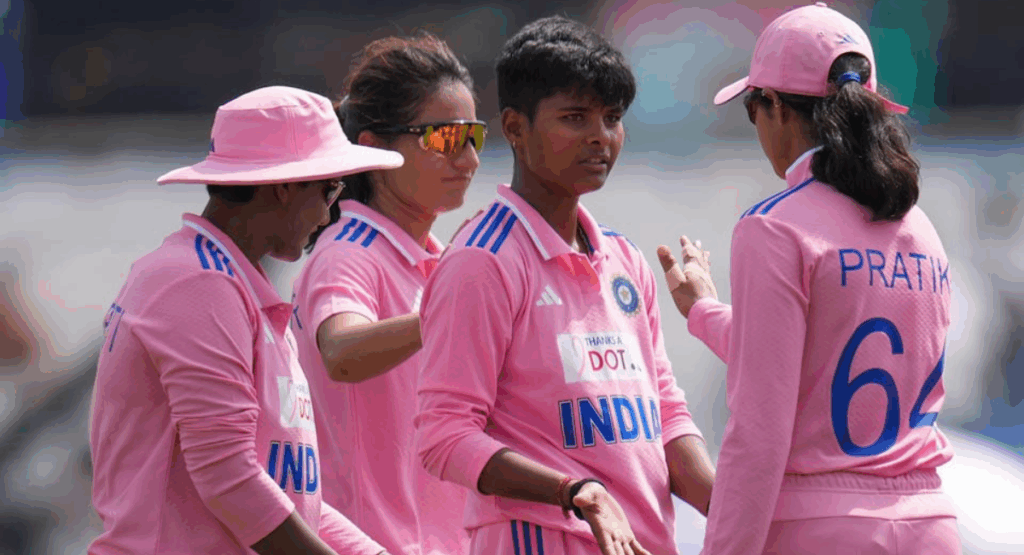
India was fined for a slow over-rate vs Australia in the third ODI held in New Delhi, where the team faced a penalty for falling short by two overs despite the inclusion of standard time allowances. As a result, the ICC imposed a fine of 10% of the players’ match fees, a sanction that has once again brought over-rate issues into focus.
Match referee G.S. Lakshmi, from the Emirates ICC International Panel, handed down the sanction. Under Article 2.22 of the ICC Code of Conduct, the ICC imposes a 5% fine per over not completed in the allotted time. This law applies to all international formats, ODIs, T20Is, and Tests. By applying this rule, the ICC aims to ensure matches progress at the expected pace.
Additionally, Captain Harmanpreet Kaur admitted the offence immediately and accepted the fine. Therefore, the ICC did not conduct a formal hearing. On-field umpires Lauren Agenbag and Janani Narayanan identified the offence, while third umpire Gayathri Venugopalan and fourth umpire Vrinda Rathi confirmed the findings.
This fine is not an isolated incident. Earlier in the year, India faced a 20% deduction in match fees during the third T20I against Australia. The team bowled one over short, and captain Virat Kohli took responsibility for the lapse. Once again, the referee at that time, David Boon, confirmed the fine without requiring a hearing.
These repeated infractions show that India struggles to maintain over-rate discipline. While tactical field settings and bowling changes play a role, the delays often prove costly. Therefore, time management has become a pressing issue for the team.
Slow over-rates do more than attract financial penalties. They also frustrate spectators and broadcasters, who expect games to run smoothly. Moreover, frequent infractions can damage a team’s reputation, suggesting poor discipline on the field.
Internationally, players have voiced their concerns about the harshness of these fines. For instance, Australian batter Usman Khawaja criticized the penalties in Test cricket, noting that players can still provide thrilling matches yet lose earnings due to over-rate rules. Nonetheless, the ICC continues to enforce strict measures to keep cricket efficient and fan-friendly.
India now faces added pressure to improve time management in the upcoming series. If the team continues to repeat such offences, players may face heavier sanctions. In extreme cases, captains can even face suspension points, which would directly affect team selection and balance.
Therefore, the coaching staff, captain, and bowlers must work together to maintain efficiency on the field. By keeping overs moving at the required pace, India can avoid unnecessary fines and protect its players from further sanctions.
In the end, India was fined for a slow over-rate vs Australia in the third ODI, which serves as a reminder of the importance of discipline in cricket. While tactics and strategies matter, teams must also respect the clock. By ensuring the timely completion of overs, India can maintain its competitive edge without risking financial and disciplinary setbacks.

